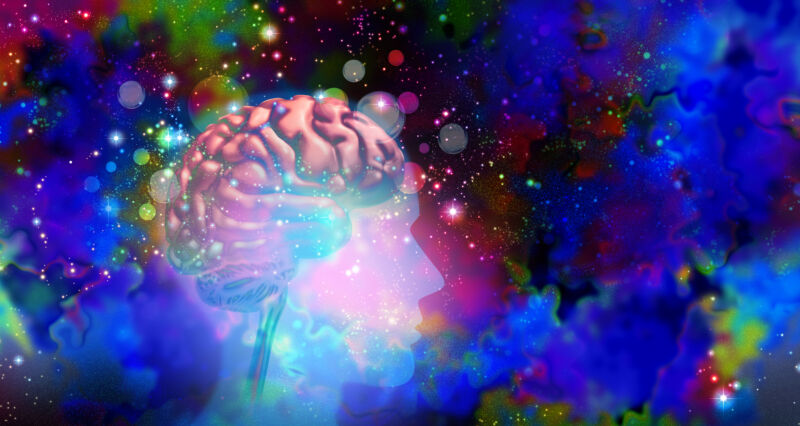Enlarge / New research hints at how psychedelics can trigger rapid, lasting change. (credit: wildpixel/Getty Images)
The human brain can change—but usually only slowly and with great effort, such as when learning a new sport or foreign language, or recovering from a stroke. Learning new skills correlates with changes in the brain, as evidenced by neuroscience research with animals and functional brain scans in people. Presumably, if you master Calculus 1, something is now different in your brain. Furthermore, motor neurons in the brain expand and contract depending on how often they are exercised— a neuronal reflection of “use it or lose it.”
People may wish their brains could change faster—not just when learning new skills, but also when overcoming problems like anxiety, depression, and addictions.
Clinicians and scientists know there are times the brain can make rapid, enduring changes. Most often, these occur in the context of traumatic experiences, leaving an indelible imprint on the brain.
Read 14 remaining paragraphs | Comments

